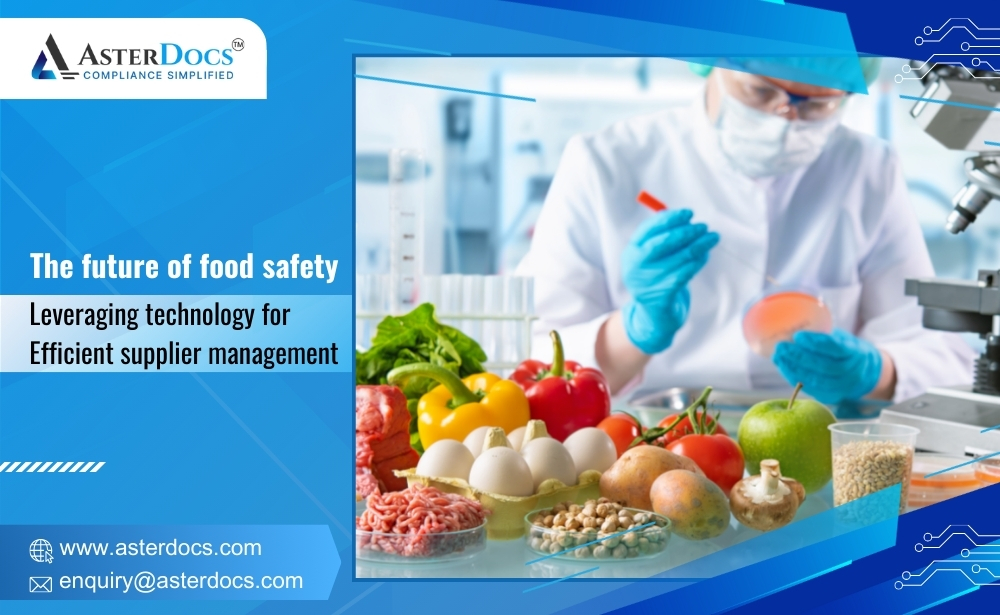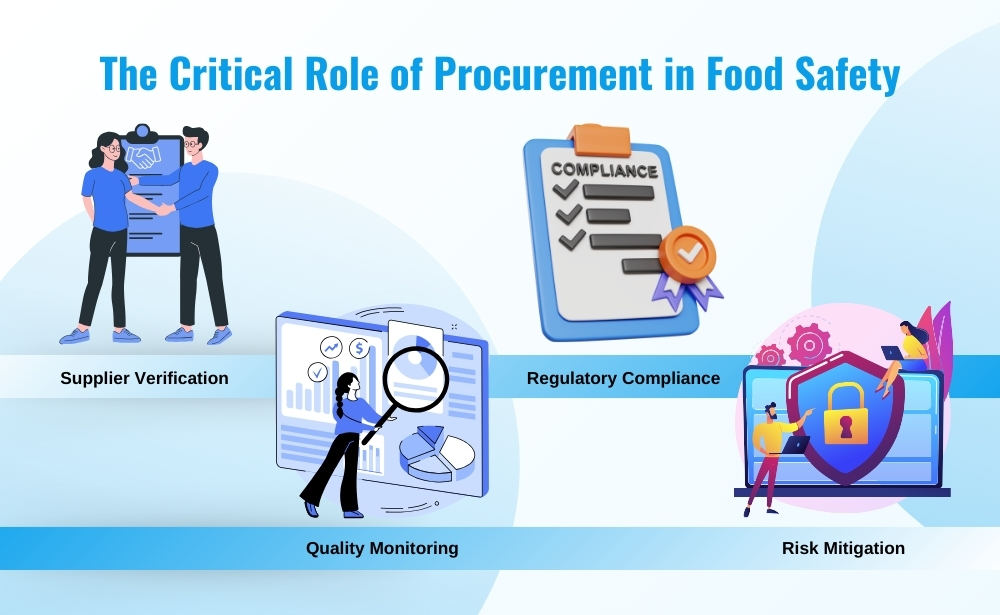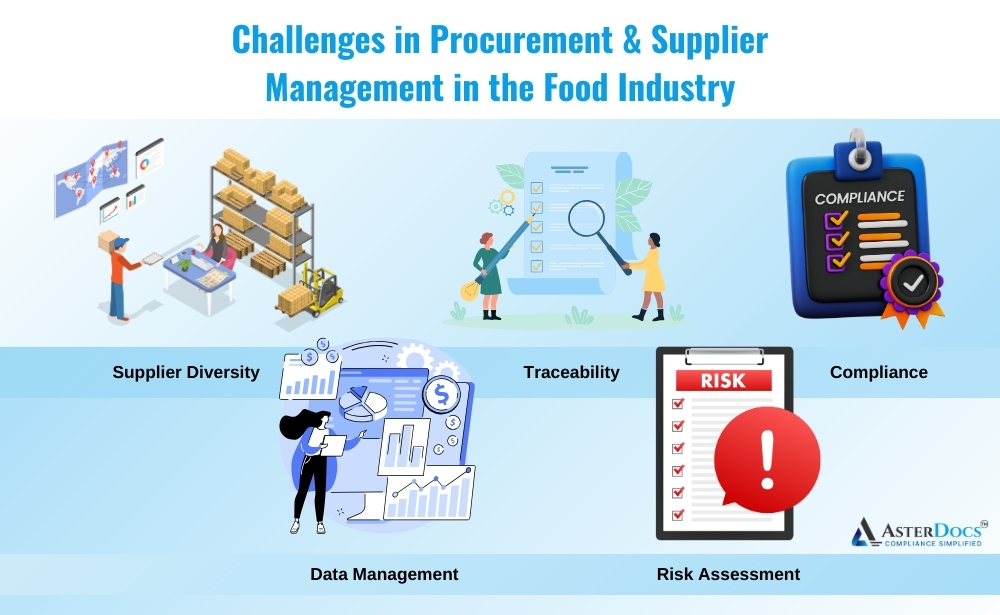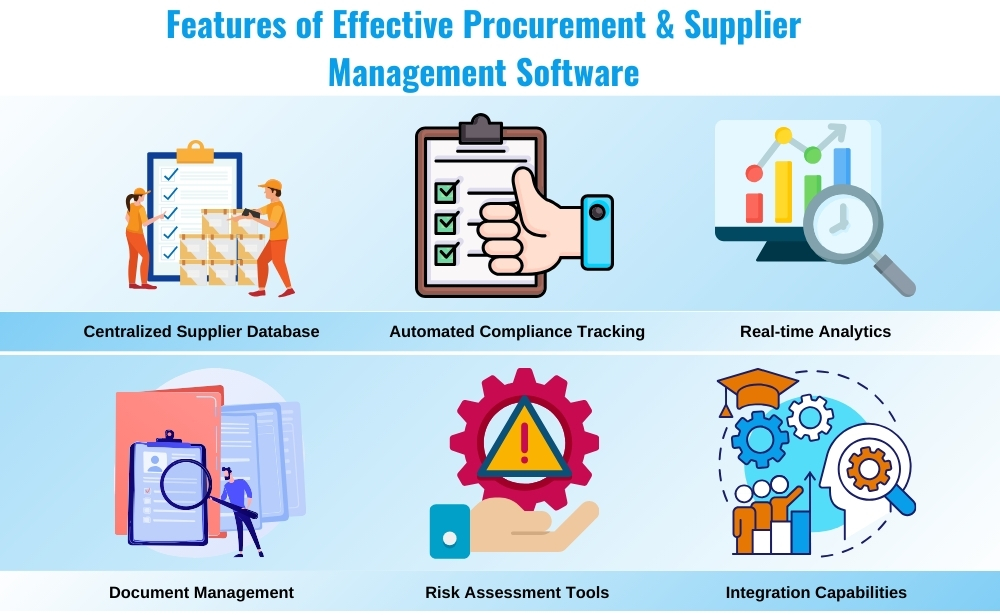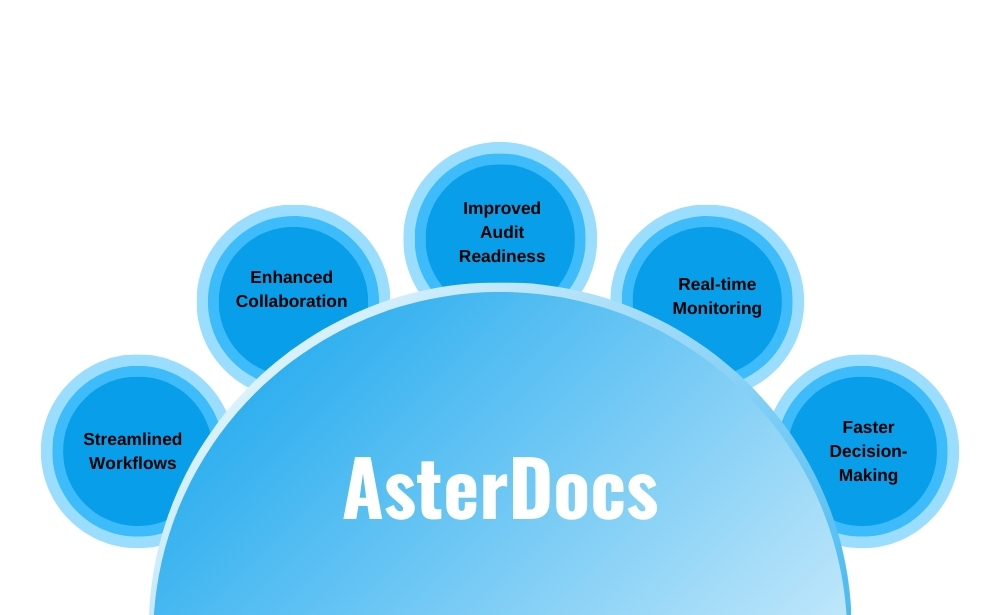Effective procurement and supplier management are crucial for ensuring food safety, quality, and operational efficiency in today’s complex and fast-growing food industry. As consumer demands evolve and regulatory requirements become more stringent, businesses must adopt sophisticated strategies to optimize their supply chains. This blog post explores the critical role of procurement supplier management systems like AsterDocs in addressing these challenges.
The Critical Role of Procurement in Food Safety
Procurement is the cornerstone of food safety. It serves as the first defense against potential hazards entering the supply chain. A robust procurement supplier management system enables food businesses to:
- Verify supplier credentials and certifications
- Monitor ingredient quality and consistency
- Ensure compliance with regulatory standards
- Mitigate risks associated with food fraud and contamination
As we delve deeper into this topic, we’ll examine the challenges faced by the industry and explore how advanced procurement solutions are revolutionizing supplier management.
Challenges in Procurement and Supplier Management
The food industry faces numerous challenges in managing its supply chain:
Supplier Diversity: How do you effectively manage a vast network of suppliers, each with unique processes and standards?
Traceability: Can you trace ingredients back to their source quickly and accurately in case of a recall?
Compliance: How do you ensure all suppliers meet regulatory requirements and industry standards
Data Management: How do you handle the enormous volume of data generated by supplier interactions and audits?
Risk Assessment: What tools do you use to identify and mitigate potential risks in your supply chain?
Addressing these challenges requires a comprehensive approach to procurement and supplier management. Let’s explore the features that make such systems effective.
Features of Effective Procurement and Supplier Management Software
Modern procurement supplier management systems offer a range of features designed to streamline operations and enhance food safety:
Centralized Supplier Database: Maintains up-to-date information on all suppliers, including certifications, audit results, and performance metrics.
Automated Compliance Tracking: Monitors supplier compliance with regulatory requirements and company standards, flagging issues for immediate attention.
Real-time Analytics: Provides insights into supplier performance, enabling data-driven decision-making.
Document Management: Centralizes all supplier-related documentation, ensuring easy access and version control.
Risk Assessment Tools: Helps identify potential risks in the supply chain and suggests mitigation strategies.
Integration Capabilities: Seamlessly connects with other enterprise systems for a holistic view of operations.
These features collectively contribute to a more efficient and safer food supply chain. But how do they translate into real-world benefits?
The Role of Procurement & Supplier Management Systems in the Industry
Consider the case of a large food manufacturer that implemented a comprehensive procurement supplier management system, like AsterDocs:
Reduced supplier onboarding time by 40%
- Improved traceability, enabling ingredient tracking within minutes instead of hours
- Achieved 99% compliance with food safety regulations
- Decreased recall incidents by 30% through improved supplier monitoring
These results underscore the tangible benefits of investing in robust procurement supplier management solutions.
Asterdocs’ Contributions to Procurement and Supplier Management
Asterdocs, a leader in document management solutions, has made significant contributions to the field of procurement supplier management:
- Streamlined document workflows, reducing processing times by up to 50%
- Enhanced collaboration between procurement teams and supplier
- Improved audit readiness through centralized document storage and version control
- Enabled real-time monitoring of supplier certifications and compliance documents
- Facilitated faster decision-making through instant access to critical supplier information
Conclusion:
The food industry stands at a critical juncture. The increasing complexity of global supply chains and heightened consumer expectations and regulatory scrutiny demand a paradigm shift in how we approach procurement and supplier management
Implementing a robust procurement supplier management system is no longer optional—it’s a necessity for survival and growth in the competitive food industry landscape. Such systems not only enhance operational efficiency but also play a crucial role in safeguarding public health by ensuring the integrity of our food supply chain.
As we move forward, the question for food industry leaders is not whether to invest in procurement supplier management solutions, but rather how quickly they can implement these systems to stay ahead of the curve. The future of food safety and quality depends on our ability to leverage technology and data for smarter, more efficient supplier management.


